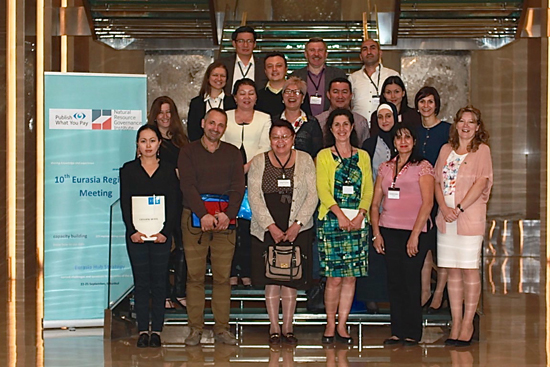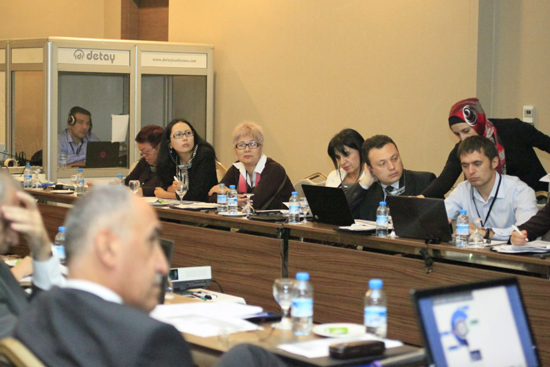
"An Intense Drive": Ten Years On, Eurasian Stakeholders Continue Push for Extractive Sector Transparency
Recently civil society organizations (CSOs) from eight Eurasian countries gathered in Istanbul for a regional meeting of extractive sector governance stakeholders, preceded by a two-day training organized by the Natural Resource Governance Institute (NRGI) and the Publish What You Pay secretariat (PWYP).

This meeting had a distinct spirit about it. First of all, it marked ten years since CSOs from the region first came together to share ideas and plans for initiating transparency and accountability movements in their countries. Looking back and taking stock of milestones over the ten-year journey—an intense drive for transparency in the extractive sector—CSOs celebrated many achievements. They also discussed challenges posed by current geopolitical trends, such as the alarming change in governments' attitudes toward independent civil society in the region.
Perhaps the most remarkable achievement to date has been the mobilization of CSOs at the forefront of the Extractive Industries Transparency Initiative (EITI), in many cases becoming the driving force behind governments’ decisions to sign up. Moreover, civil society has remained throughout the process a genuinely independent voice for and champion of effective EITI implementation.
“Perhaps the most remarkable achievement to date has been the mobilization of CSOs at the forefront of EITI, in many cases becoming the driving force behind governments’ decisions to sign up.”
For example, in Albania, one of the first countries to issue an EITI report based on the new standard, CSOs actively participated in the analyses of EITI reports and planned to get more deeply involved. (See Q&A with Albania’s Ilir Aliaj.) Likewise in Ukraine, CSOs contributed greatly to the development of a working plan and built public awareness of EITI. (See Q&A with Ukraine’s Olena Pavlenko.) However, it was clear at the recent meeting that future EITI reporting in Ukraine would be postponed due to changing politics and priorities in the country.
Such problems are not unique to Ukraine. Despite years of helping governments benefit from EITI implementation, CSOs throughout Eurasia have come under unprecedented pressure. As noted by many at the meeting, the continued Russia-Ukraine crisis—a standoff between different sets of values (openness and democracy versus closed society and autocracy)—has had effects on the whole region. Indeed, close geographical proximity to this push-and-pull geopolitical chess game in Eurasia has clearly heightened governments’ sense of caution toward critical and independent voices. Even the more democratic governments of Mongolia and Kyrgyzstan have not bucked the trend.
“Despite years of helping governments benefit from EITI implementation, CSOs throughout Eurasia have come under unprecedented pressure.”
The most illustrative case is certainly that of Azerbaijan, whose EITI compliant status will be reviewed in February by the EITI International Board. At the regional meeting, country representatives shared reports of intimidation and aggression toward foreign-funded CSOs. Independent organizations are not only being prosecuted on cooked-up charges, they say, but their honest and dedicated work is being discredited by the government. (See Q&A with Azerbaijan's Gubad Ibadoglu.)

NRGI shares the views expressed by participants at the regional meeting—that if governments fail to end these dangerous trends, EITI cannot maintain the multi-stakeholder approach that has formed the initiative’s core since its founding, nor can EITI contribute positively to natural resource governance, where effective oversight by civil society is critical. Working with counterparts and partners throughout Eurasia, NRGI will continue to assist with capacity development, institutional support and international advocacy, especially in countries where CSOs remain genuine and dedicated stakeholders in the drive towards extractive sector transparency and accountability.
Galib Efendiev is NRGI’s Eurasia regional coordinator.
